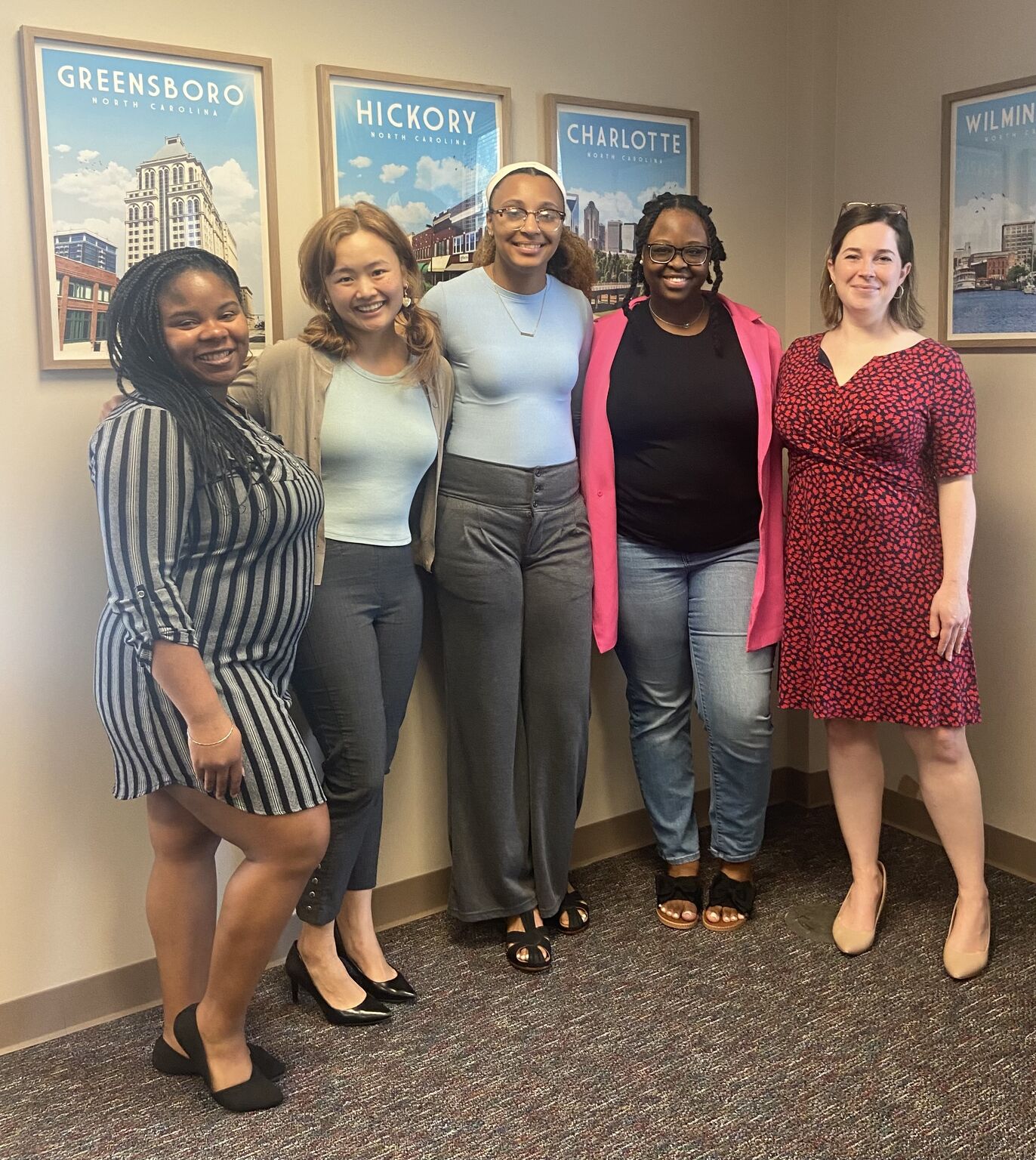A Q&A with the 2024 School of Government Summer Law Fellows
In June 2024, the School of Government revived its law fellowship program, welcoming Rose Chang, Nevaeh Haddock, and Sheridan King to a summer training to work on legal issues of interest to School faculty and clients.
Under the direction of faculty members Brittany Bromell and Kirsten Leloudis, the law fellows worked on a variety of assignments from faculty, including research and writing, advising, and observations of School programs and government and court functions. Substantive areas addressed in the fellowship included tax and finance, economic development, land use, community planning, social services, public health, elections, employment, criminal law, and civil law.
Over eight weeks, fellows are exposed to the overall work of the School and learn about the daily work and responsibilities of faculty members. By working closely with faculty, fellows have the opportunity to learn about the needs of public officials and observe how training and research can better equip their needs.
Below, they answer questions about the experience, what it taught them, their work with School faculty, and their next paths in exploring the intersection between government and law.
Rose Chang
Rising Third Year Student, University of Richmond School of Law; Master of Public Administration Candidate, Virginia Commonwealth University
How did the School faculty provide guidance or help to you during the fellowship?
“Many faculty members made sure they weren’t strangers. We were welcome to share our journeys and, in return, learn more about theirs. I especially enjoyed hearing about each faculty member’s professional pursuit. It inspires me to meet affable yet passionate individuals who want to serve their community and the diversity of pathways that led them here.”
What was one of your favorite assignments that you researched and wrote about?
“I found my first project to be my favorite. I worked with Kirsten to research parenting and pregnant adolescent rights to education in North Carolina. I felt excitement and satisfaction in trying my hand at reading NC General Statutes and Administrative Code (as a student in Virginia), but I especially loved connecting the dots between these laws and codes to the local school board’s policy. I was able to identify repetition in certain language of these varying sources. Though a shorter project, this comparative analysis reaffirmed my enjoyment of research. “
Nevaeh Haddock
Rising Second Year Student, UNC School of Law
How did the structure of the program affect your learning experience?
“The UNC School of Government Summer law fellowship was structured in a way that allowed for the utmost flexibility. We were given the opportunity to work with any faculty member with an active project and did so until we completed the assigned tasks for the project. We would receive feedback from that faculty member directly and had weekly check-ins with the program directors to let them know what we were working on and how the projects were going.”
After completing the fellowship, what’s next for you in your public service and legal career?
“I am now adding a graduate certificate in International Peace and Conflict Transformation to my Juris Doctor studies, and am hoping to work for a nonprofit or a government agency next summer! I also feel prepared to take on more Pro Bono work this year and am excited to see what the 2L [second year of law school] experience has in store for me.”
Sheridan King
Rising Third Year Student, North Carolina Central University School of Law; Master of Public Administration Candidate, North Carolina Central University
What did the experience of the fellowship teach you about the intersection of law and government?
“As a joint-degree student pursuing a juris doctor and a master’s in public administration, I understood the intersectionality of law and government prior to my fellowship. However, I did not understand the pivotal role that the School of Government plays in helping the community understand North Carolina's government and law. I loved being able to work on unique issues that directly impacted North Carolina citizens.”
How did the School faculty provide guidance or help to you during the fellowship?
“The School faculty maintained an open-door policy with each Fellow, regardless of our interest, which made the transition into the program incredibly easy! I was always encouraged to reach out to various faculty members via email or in person. We were also able to attend weekly lunches and teaching sessions with different faculty members which furthered our relationships throughout the program.
Published August 8, 2024


